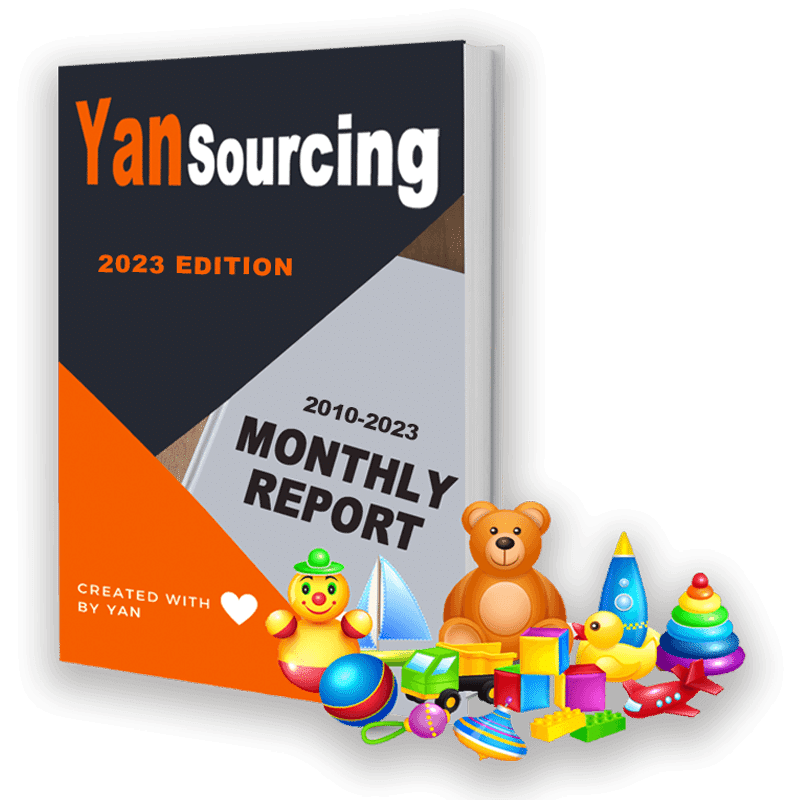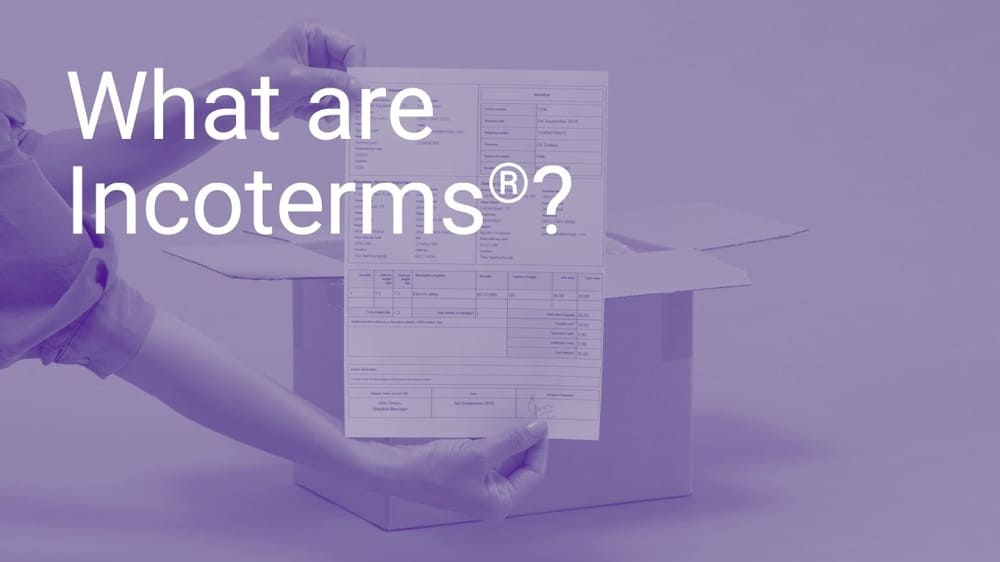
To help you with your import and export trade, the International Chamber of Commerce (ICC) has introduced International Commercial Terms, also called “Incoterms” for short.
What are Incoterms?
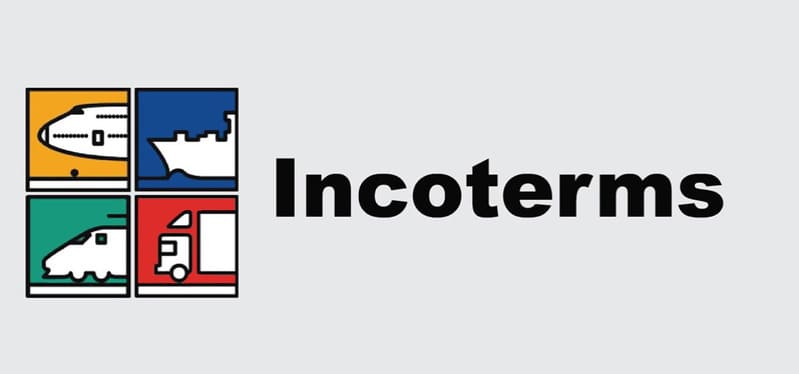
As a common terminology when trading goods around the world, it provides detailed and standardized explanations of terms commonly used in international trade and serves.
As a common language for global international trade, helping to facilitate global trade activities.
Whether you are completing purchase orders, packing and labeling goods, or preparing certificates of origin, these rules have become part of our everyday trade language, providing guidance for you.
Why are Incoterms so important?
Using Incoterms in the sale and purchase contracts can clarify the respective obligations of both and reduce the risk of legal disputes.
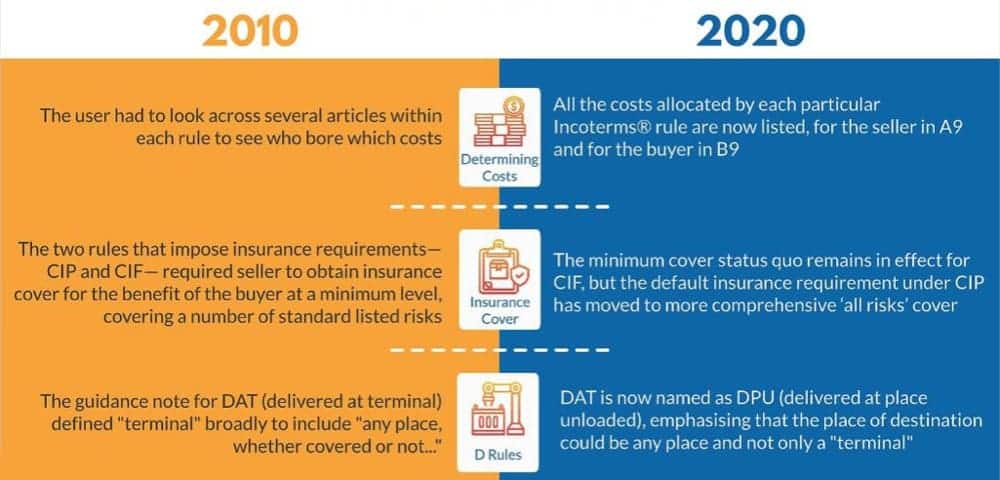
Since the Incoterms was created by ICC in 1936, this globally contractual standard has been regularly updated to keep pace with the evolution of international trade.
What are 11 types of Incoterms?
1) EXW – Ex Works (factory delivery)
The seller delivered the goods to the buyer at his own place or other places (workshop, factory, warehouse, etc.), then the seller has completed the delivery.
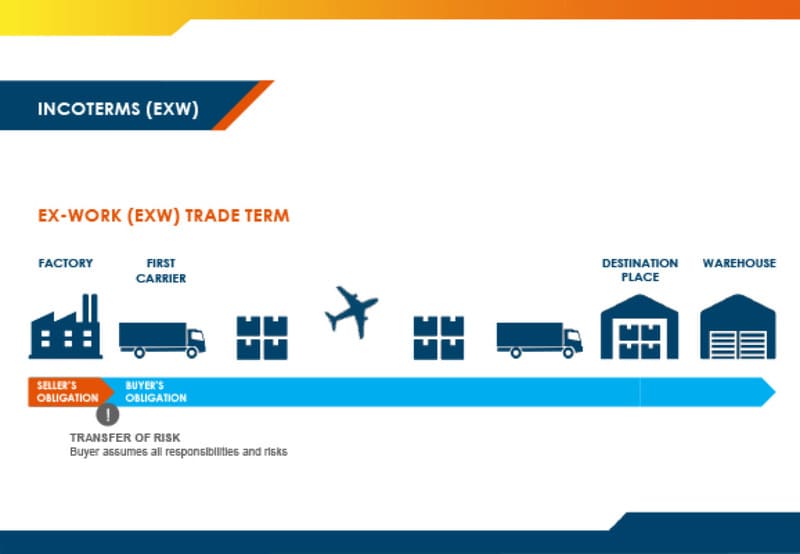
The seller is not required to load the goods to any means of delivery and is not required to clear the goods through customs for export.
The term EXW indicates the seller’s minimum liability.
2) FCA – Goods to Carrier (named place of delivery)
FCA has two different meanings, each with different levels of risk and cost for both buyer and seller.
A. when the seller delivers the goods at the named place (seller’s location), and completed customs clearance.
B. when the seller delivered the goods at the named place (other than the seller’s place) and completed the customs clearance.
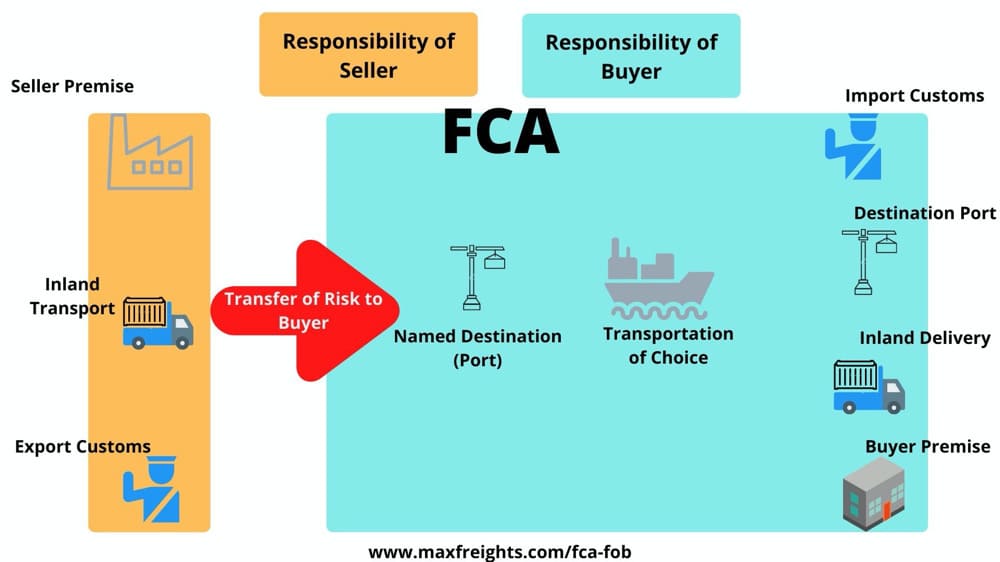
In both cases, the goods can be delivered to the carrier appointed by the buyer or to an agent by the buyer.
3) CPT – Carriage Paid to (named place of destination)
With CPT, the seller pays the cost of transporting the goods to the named destination.
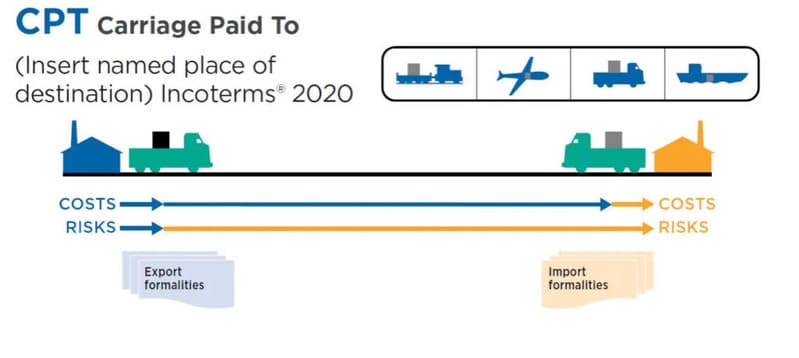
4) CIP – Carriage and Insurance Paid to (named place of destination)
Similar to CPT, but with the difference that the seller is required to purchase a minimum amount of insurance for the goods during transportation.
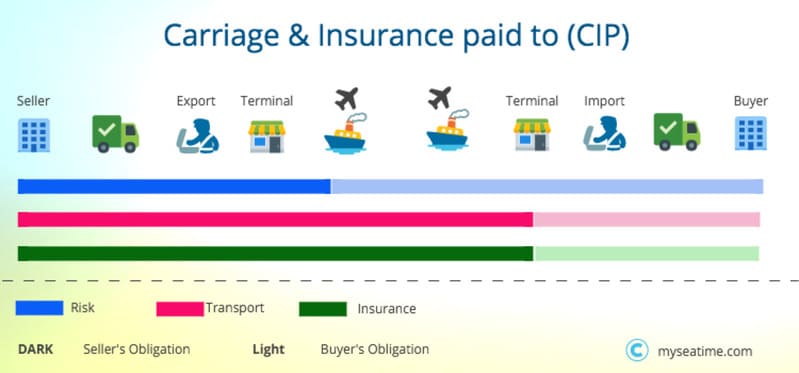
5) DAP – Delivery at Destination (named place of destination)
Delivery is considered to be made when the goods are delivered by some mode of transportation to the destination and ready for unloading at the buyer’s disposal at will.
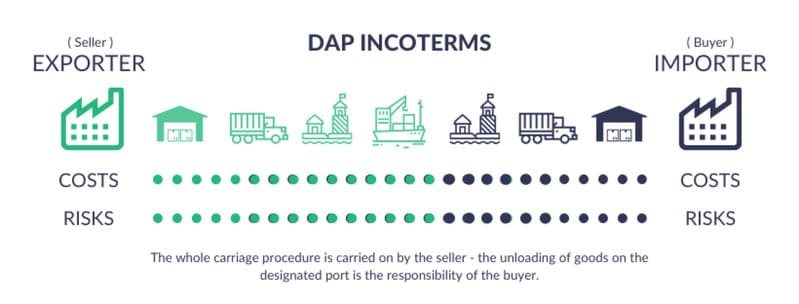
With the term DAP, the seller needs to manage all the risks introduced into the design of the goods.
6) DPU -Delivered and Unloaded at Destination (named place of destination)
This incoterm requires the seller to deliver and unload the goods at the named place.

The seller shall pay all transportation costs (export charges, freight, unloading by the main carrier at the destination port, and destination port charges) and assume all risks until arrival at the destination.
7) DDP – Delivered Duty Paid (named place of destination)
The seller is responsible for delivery of the goods to a named place in the buyer’s country or region and pays all costs of the goods to their destination, including import duties and taxes.
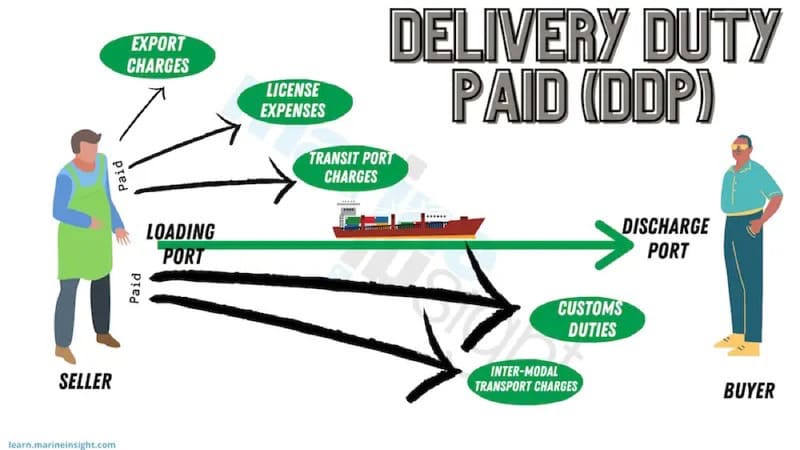
The seller is not responsible for unloading the goods.
8) FAS – Ship Side Delivery (named port of shipment)
Delivery is completed by the seller when the goods are placed alongside the ship (e.g., on a dock or barge) at the named port of shipment as named by the buyer.
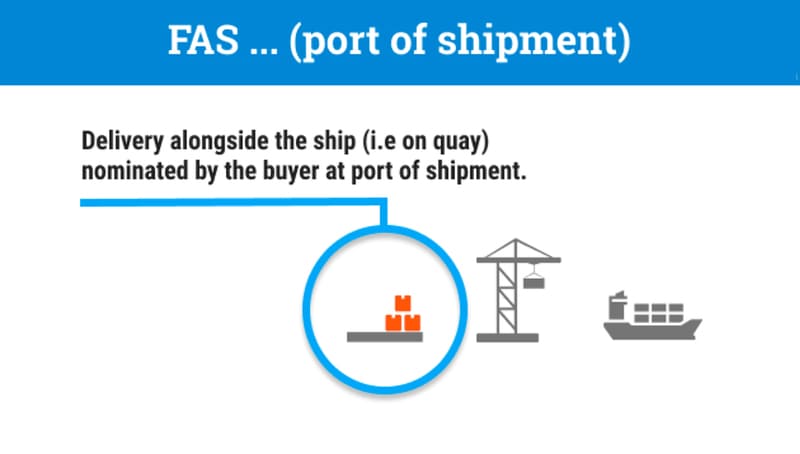
While the goods are at the ship’s side, the risk of loss or damage to the goods is transferred and the buyer is responsible for all costs incurred from that point onwards.
9) FOB – Free on Board
The seller delivers the goods to the ship named by the buyer at the named port of shipment or obtains the goods already delivered in this manner.
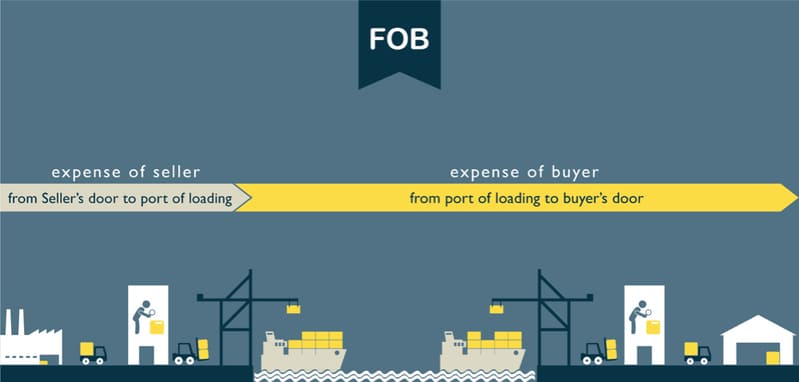
While the goods are on board, the risk of loss of or damage to the goods is transferred and the buyer is responsible for all costs incurred from that time onwards.
10) CFR – Cost and Freight
The seller delivers the goods on board the ship. While the goods are on board, the risk of loss of or damage to the goods is transferred.
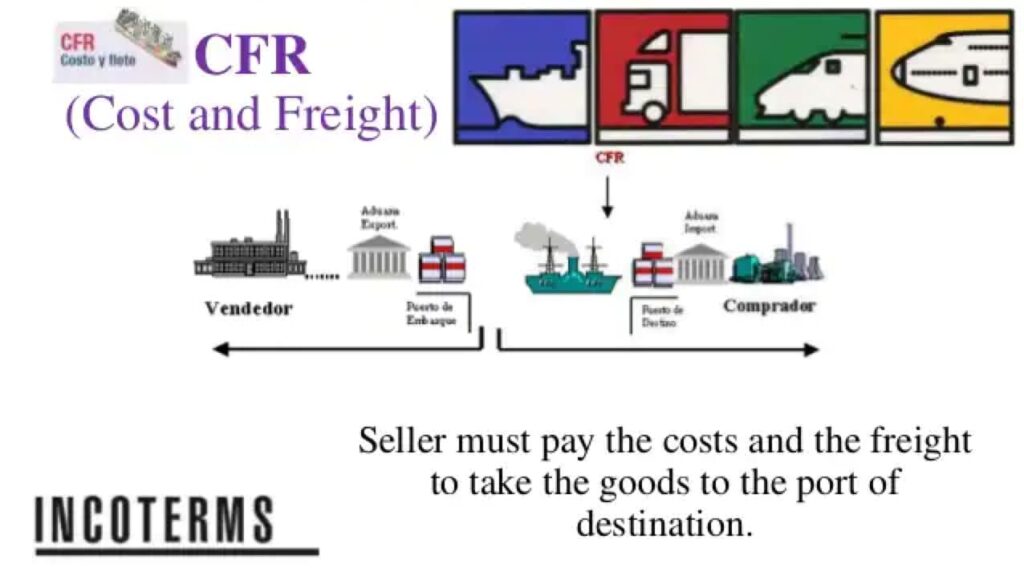
The seller must contract for the delivery of the goods to the named port of destination and pay the necessary cost and freight.
11) CIF – Cost, Insurance, and Freight
Essentially the same as CFR, but in addition to the requirements of CFR, the seller must purchase minimum insurance for the buyer’s risk of loss or damage to the goods during transportation.

Useful Information
Incoterms® do not constitute a complete sales contract, but rather a part of it. The following structure should be used in the application.
“[Incoterm® rule selected] [port, location or place specified] Incoterms® 2020”
For example: “CIF Shanghai Incoterms® 2020” or “DAP 10 Downing Street London, UK Incoterms® 2020”
For more detailed information, please refer to the ICC official website:


